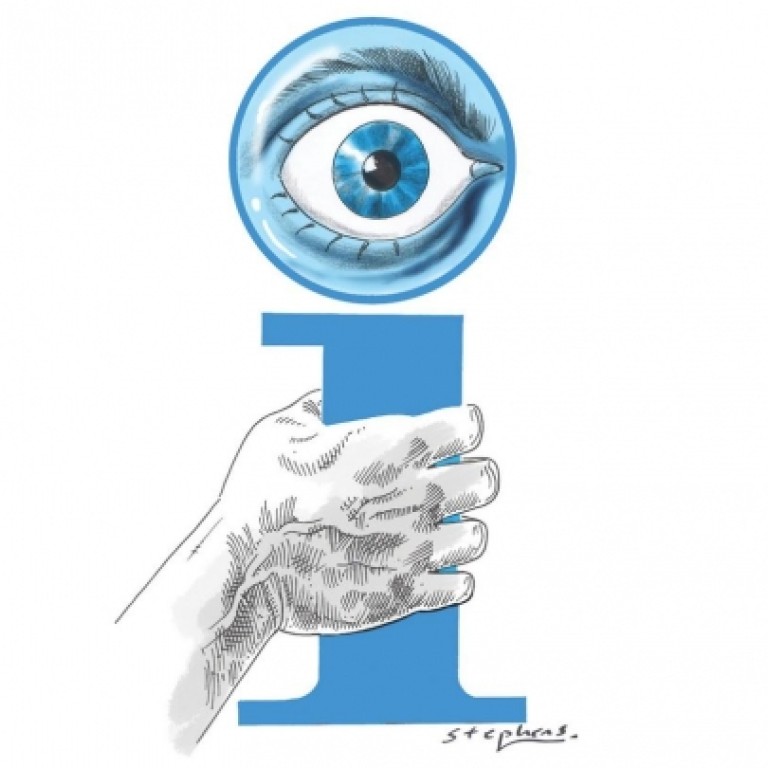
Time to stop the tech giants snooping on us
Graeme Maxton says the fuss made over the revelations of an ex-CIA analyst is distracting us from the task at hand - standing up to amoral tech giants that want to know too much about us
The events surrounding whistle-blower Edward Snowden, the ex-CIA analyst and until a few days ago a Booz Allen Hamilton employee, have an element of tragedy as well as farce.
The tragedy comes from the witch-hunt that is being used to cover up the news that US security agencies have been gathering data about us from the big technology firms for years.
There is scant evidence that this massive effort to spy on us is making us any safer
The farce is that this is not news. The desires of US spooks to know too much about us and the dubious morality of Google, Microsoft, Apple and others were already well documented.
The story actually begins in 2002, when America's security agencies established the Information Awareness Office. This was created in order to build a massive database about everyone, to store e-mails, financial transactions, medical records and information about our social networks. It was to be used to identify suspicious activity, unhealthy relationships and threats.
The office was shut down after 18 months because of privacy fears. But many of its projects continued to receive funding, the big computer needed to analyse all the data is almost finished and what it set out to do has largely been achieved. America's National Security Agency's (NSA) US$2 billion data-storage facility in Utah will open soon and it will have the capacity to store and process yottabytes for decades to come.
Helpfully, Google, Facebook, Twitter, Apple and all the others have collected all the information that the Information Awareness Office originally wanted to fuel this computer, and much more effectively than first envisaged.
Rather than the NSA needing wire-taps and warrants, these companies have persuaded us to give the information the authorities wanted voluntarily. We have told them all about our habits, views and relationships. We have explained to them in great detail what we like and what we fear. And we have even downloaded little apps to show them our location and the identities of those around us, thinking these useful, not troubling.
And we have done this despite knowing that the companies collecting this information are morally suspect. Intel, Google and Microsoft have all been fined for anticompetitive behaviour, while Apple and Skype have been investigated for it.
Google got caught getting around the privacy settings on its own browser and illegally collected internet access points with its Street View car. It then failed to delete the information despite repeated assurances that it would.
The US Federal Trade Commission says Facebook has "repeatedly" failed to honour promises to keep personal information private. Many of Apple's apps have been found to be harvesting entire address books without our permission. Twitter was also found storing the address lists of its customers on its servers without them knowing and when it got caught, simply amended its privacy policy to make the practice standard.
Google's search engine tracks your interests and filters future results depending on your previous searches. YouTube, which Google owns, tracks your taste in videos and music. Street View, Google Earth and Google Maps show where you live and where you go. Picasa, Google's photo-sharing website, uses facial-recognition software to identify you and your friends.
Gmail knows whom you write to and what you say. Google Docs stores your letters. Google Calendar knows your plans. The company's Android operating system on your phone or tablet knows exactly where you are and where you have been. The company's privacy policy also allows it to collate all this information.
It seems almost laughable to think that Google was doing this just so that it could sell us more stuff. Now it is clear that there were other, much more sinister, motives lurking somewhere in the background.
Most troubling of all, there is scant evidence that this massive effort to spy on us is making us any safer. The number of deaths caused by terrorist acts in most of the world in the past 12 years is minuscule compared to those caused by heart disease, road accidents and even childbirth.
Instead of being distracted by the hounding of Snowden, we should be asking ourselves why these companies and the American government are invading our privacy like this. And we should first stop helping them do it.

